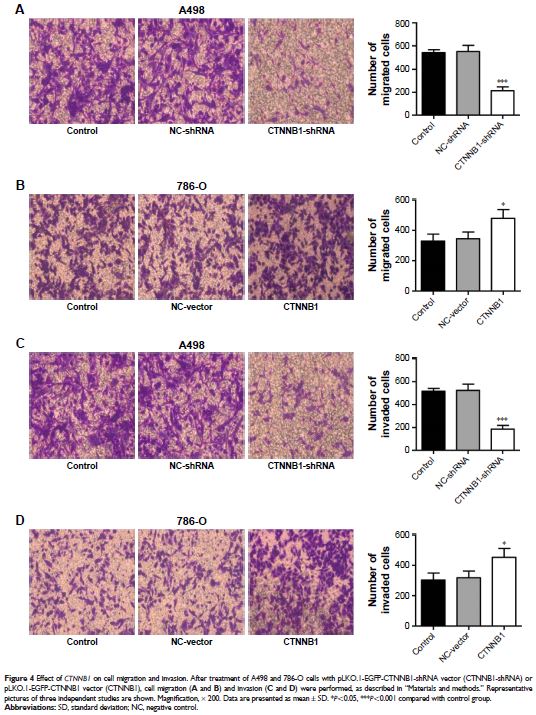109568
论文已发表
注册即可获取德孚的最新动态
IF 收录期刊
- 3.4 Breast Cancer (Dove Med Press)
- 3.2 Clin Epidemiol
- 2.6 Cancer Manag Res
- 2.9 Infect Drug Resist
- 3.7 Clin Interv Aging
- 5.1 Drug Des Dev Ther
- 3.1 Int J Chronic Obstr
- 6.6 Int J Nanomed
- 2.6 Int J Women's Health
- 2.9 Neuropsych Dis Treat
- 2.8 OncoTargets Ther
- 2.0 Patient Prefer Adher
- 2.2 Ther Clin Risk Manag
- 2.5 J Pain Res
- 3.0 Diabet Metab Synd Ob
- 3.2 Psychol Res Behav Ma
- 3.4 Nat Sci Sleep
- 1.8 Pharmgenomics Pers Med
- 2.0 Risk Manag Healthc Policy
- 4.1 J Inflamm Res
- 2.0 Int J Gen Med
- 3.4 J Hepatocell Carcinoma
- 3.0 J Asthma Allergy
- 2.2 Clin Cosmet Investig Dermatol
- 2.4 J Multidiscip Healthc

β-联蛋白促进肾细胞癌的细胞增殖、迁移和侵袭,但诱导凋亡
Authors Yang CM, Ji S, Li Y, Fu LY, Jiang T, Meng FD
Received 23 July 2016
Accepted for publication 2 November 2016
Published 20 February 2017 Volume 2017:10 Pages 711—724
DOI https://doi.org/10.2147/OTT.S117933
Checked for plagiarism Yes
Review by Single-blind
Peer reviewers approved by Dr Lucy Goodman
Peer reviewer comments 2
Editor who approved publication: Dr Ingrid Espinoza
Abstract: β-Catenin (CTNNB1 gene
coding protein) is a component of the Wnt signaling pathway that has been shown
to play an important role in the formation of certain cancers. Abnormal accumulation
of CTNNB1 contributes
to most cancers. This research studied the involvement of β-catenin in renal
cell carcinoma (RCC) cell proliferation, apoptosis, migration, and invasion.
Proliferation, cell cycle, and apoptosis were analyzed by using Cell Counting
Kit-8 and by flow cytometry. Migration and invasion assays were measured by
transwell analysis. Real-time polymerase chain reaction and Western blot
analysis were used to detect the expression of CTNNB1, ICAM-1, VCAM-1, CXCR4,
and CCL18 in RCC cell lines. It was found that CTNNB1 knockdown inhibited cell
proliferation, migration, and invasion and induced apoptosis of A-498 cells. CTNNB1 overexpression promoted cell
proliferation, migration, and invasion and inhibited apoptosis of 786-O cells.
Moreover, knockdown of CTNNB1 decreased the levels of ICAM-1,
VCAM-1, CXCR4, and CCL18 expression, but CTNNB1 overexpression increased the
expression of ICAM-1, VCAM-1, CXCR4, and CCL18. Further in vivo tumor formation
study in nude mice indicated that inhibition of CTNNB1 delayed the progress of tumor
formation through inhibiting PCNA and Ki67 expression. These results indicate
that CTNNB1 could act as an oncogene and may serve
as a promising therapeutic strategy for RCC.
Keywords: kidney cancer, oncogene, β-catenin,
survival time, tumor migration-related protein
